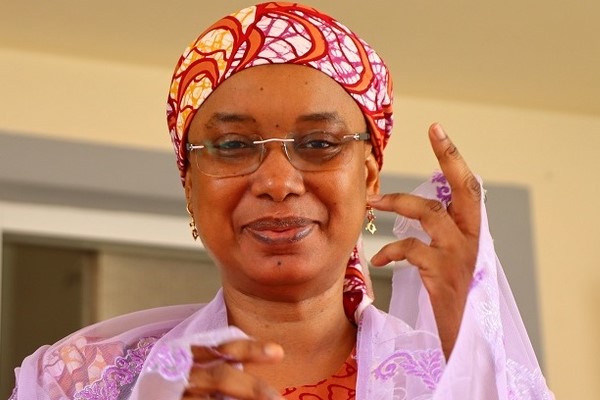A Federal High Court, Abuja, on Friday, struck out the suit filed by Sen. Aishatu Dahiru, the All Progressives Congress (APC) governorship candidate in the last election in Adamawa against the Independent National Electoral Commission (INEC) and others.
Justice Donatus Okorowo, in a judgment, held that the court lacked jurisdiction to hear the matter, hence, the preliminary objection of the defendants succeeded.
Dahiru had sought a court order restraining INEC from prosecuting the suspended Adamawa Resident Electoral Commissioner (REC), Hudu Yunusa-Ari, for declaring her as winner of March 18 governorship poll, pending the hearing and determination of her petition before Adamawa Election Petition Tribunal.
The APC candidate, popularly known as Binani, argued that Yunusa-Ari’s prosecution at Adamawa High Court before the election tribunal’s decision would prejudice her case since the suspended REC was her star witness at the tribunal.
After Yunusa-Ari declared Binani as winner of the poll before the conclusion of the process on Aprill, INEC Headquarter barred him from the state’s office.
Following a supplementary poll, INEC declared Gov. Umaru Fintiri as winner of the election and ordered the prosecution of Yunusa-Ari at the state’s high court.
But Binani, in a suit marked: FHC/ABJ/CS/935/2023, sued INEC, Inspector-General (I-G) of Police and the Attorney-General of the Federation (AGF) as 1st to 3rd respondents respectively.
In the suit, the applicant sought the interpretation of Section 144 of the Electoral Act, 2022 and a preservative order seeking the maintenance of status quo by parties pending the hearing and determination of the suit.
Binani’s counsel, Michael Aondoaka, SAN, in the ex-parte motion earlier filed and granted by the court on July 10, drew the attention of the judge to the fact that a petition was before an Adamawa Election Petition Tribunal and would be dispensed with within 180 days in accordance with the law.
The lawyer argued that the star witness to their client, Yunusa-Ari, was being harassed and prevented from giving evidence before the tribunal which if continued, would jeopardise the case of their client at the tribunal.
He prayed the court to restrain the respondents from prosecuting Yunusa-Ari pending the determination of Binani’s petition at the tribunal.
But counsel to INEC, Adebisi Adeniyi, who held brief for Rotimi Jacobs, SAN, disagreed with Binani’s lawyer’s submission.
Adeniyi argued that the charge being preferred against the suspended REC was a bailable one that would allowed him to give his testimony before the tribunal.
The lawyer said that Binani had not placed any thing before the court to show she had reasonable course of action.
Besides, he argued that the applicant had not also shown to court whether the suspended REC had either been invited, arrested or charged.
The lawyer, who said that the judges that would determine the election petition case were not robot, said they were judges that were properly trained, who were experienced and would be guided by law.
According to him, there is no way the prosecution of the suspended REC will affect the plaintiff’s petition.
He submitted that if Yunusa-Ari felt strongly about the charge, he was the rightful person to canvass such argument before a high court in the state and not Binani.
Adeniyi, who challenged the jurisdiction of the court to hear the matter, said the suit ought to have been filed in the state.
Delivering the judgment, Justice Okorowo though agreed with Binani that she had disclosed course of action in the matter, he however held that the court did not have jurisdiction to entertain the case.
The judge held that if the preliminary objection of the defendants succeeded, the court had nothing to adjudicate on any more.
“The preliminary objection succeeds and the case is hereby struck out. This is the order of this court,” he said.


